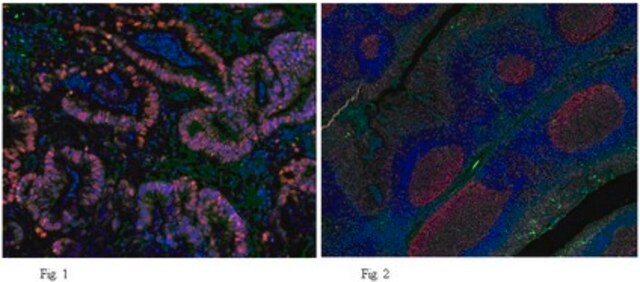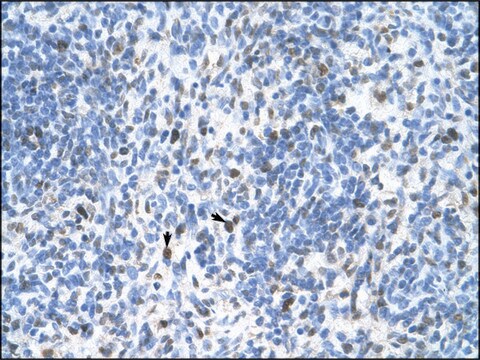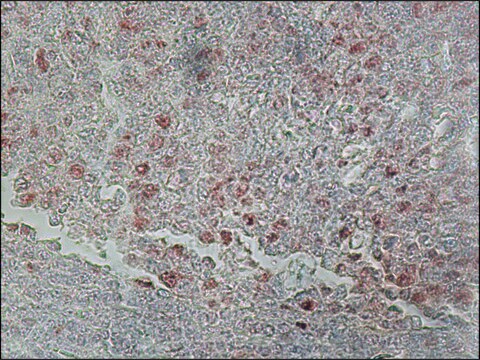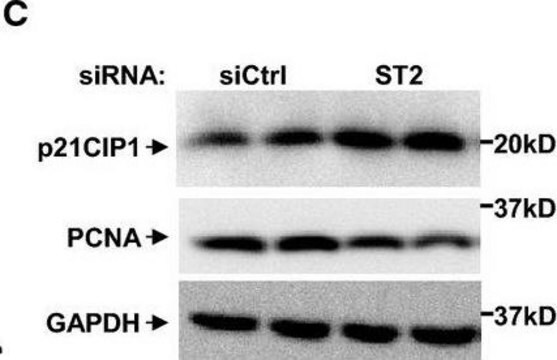PLA0080
Rabbit anti-PCNA Antibody, Affinity Purified
Powered by Bethyl Laboratories, Inc.
Synonym(e):
ATLD2, DNA polymerase delta auxiliary protein, PCNA, cyclin
About This Item
Empfohlene Produkte
Biologische Quelle
rabbit
Qualitätsniveau
Antikörperform
affinity purified immunoglobulin
Antikörper-Produkttyp
primary antibodies
Qualität
Powered by Bethyl Laboratories, Inc.
Speziesreaktivität
mouse, human
Methode(n)
immunohistochemistry: 1:2,000-1:10,000
immunoprecipitation (IP): 2- 5 μg/mg
western blot: 1:5,000- 1:20,000
Hinterlegungsnummer
P12004
UniProt-Hinterlegungsnummer
Versandbedingung
wet ice
Lagertemp.
2-8°C
Posttranslationale Modifikation Target
unmodified
Angaben zum Gen
rabbit ... PCNA(5111)
Immunogen
Physikalische Form
Sonstige Hinweise
Haftungsausschluss
Sie haben nicht das passende Produkt gefunden?
Probieren Sie unser Produkt-Auswahlhilfe. aus.
Lagerklassenschlüssel
12 - Non Combustible Liquids
WGK
nwg
Flammpunkt (°F)
Not applicable
Flammpunkt (°C)
Not applicable
Analysenzertifikate (COA)
Suchen Sie nach Analysenzertifikate (COA), indem Sie die Lot-/Chargennummer des Produkts eingeben. Lot- und Chargennummern sind auf dem Produktetikett hinter den Wörtern ‘Lot’ oder ‘Batch’ (Lot oder Charge) zu finden.
Besitzen Sie dieses Produkt bereits?
In der Dokumentenbibliothek finden Sie die Dokumentation zu den Produkten, die Sie kürzlich erworben haben.
Unser Team von Wissenschaftlern verfügt über Erfahrung in allen Forschungsbereichen einschließlich Life Science, Materialwissenschaften, chemischer Synthese, Chromatographie, Analytik und vielen mehr..
Setzen Sie sich mit dem technischen Dienst in Verbindung.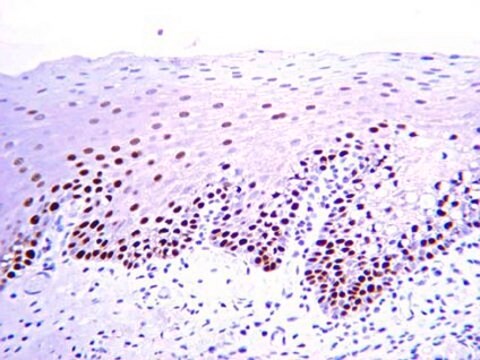
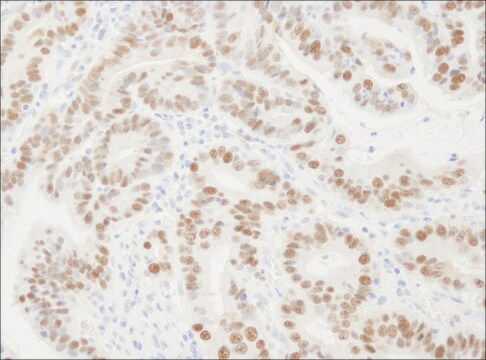
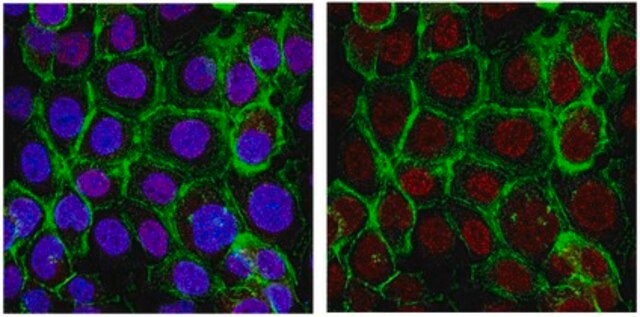
![4-Methyl-3-[[(2RS)-2-(propylamino)-propanoyl]-amino]-thiophen-2-carbonsäure-1-methylethylester -hydrochlorid certified reference material, TraceCERT®, Manufactured by: Sigma-Aldrich Production GmbH, Switzerland](/deepweb/assets/sigmaaldrich/product/structures/923/308/68da447c-9ba3-4df8-862e-cac32b88490c/640/68da447c-9ba3-4df8-862e-cac32b88490c.png)

